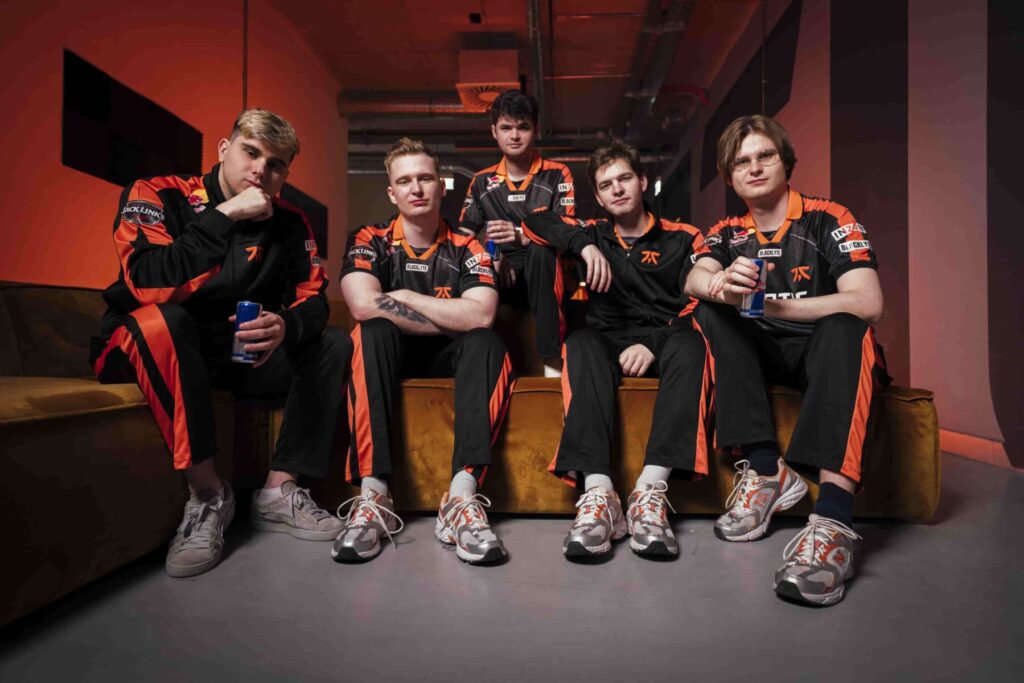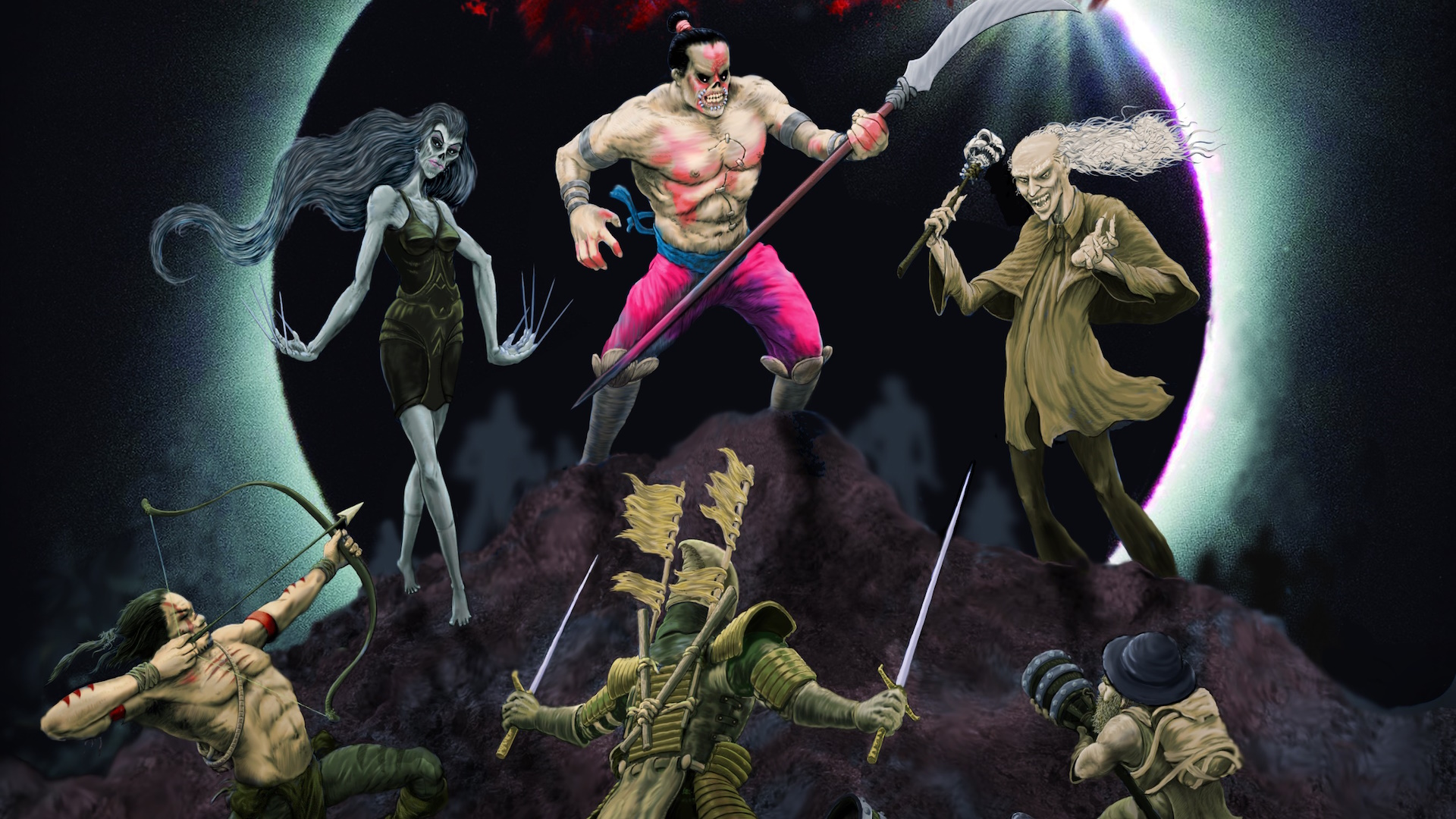
Esports is all about opportunities and the startup Parabled is looking to revolutionize the way players learn the game, providing an affordable learning environment. We spoke with the mastermind behind the company, founder and current Team Heretics coach Christopher “SeeEl” Lee.
Image Credits | Esports.net
PARABLED – The origin story of Christopher
We can’t talk about PARABLED without first looking at Christopher’s past and how his ambitions got to where he and the startup are today.
Christopher started getting in touch with the gaming world while he was studying economics and finance at a university in Oceania. By working with a fintech company called Sprinkle, which used social media integration and crowd-sourcing as a form of information to make decisions when investing, he noticed how many companies were looking to gamify the space, making the education and learning experience more interactive and, most importantly, fun.
It left a lasting impression on me. Even though I wasn’t the most academic person, I had several working experiences. By working closely with different types of customers, I’ve always tried to understand what kind of products were needed in a given space and that helped me a lot while I was working with Sprinkle. There are other learning platforms, such as Duolingo and Coursera, which have shifted to gamifying learning products. And that inspired me to find a niche that I was good at and where I could implement these ideologies. That niche ended up being esports.
Christopher first stepped into the industry in 2018 when people were bullish on the industry and the potential it had. That said, the space was still quite lagging so he decided to first “meddle with” an esports marketing company called Headworks.
We did marketing for an internet cafe and we also looked at management and coaching by selling educational programs to universities. Unfortunately, the sector was still too underdeveloped so during that process, I ventured into the idea of becoming a content creator. Around that time, I realized the niche to differentiate myself from others was coaching. By studying the game thoroughly, I was able to develop my coaching skills more and more, and eventually, I became a well-known solo queue coach in Oceania in 2019.
Image Credits | Team Heretics
Christopher continued to expand his working experience in esports by working as a part-time translator and player-manager and was later given the chance to work for one of the most important esports teams in Oceania, Chief Esports Club. At that point, however, he also found himself with a tough choice to make: Christopher dropped out of his studies to pursue a career in esports while also collecting more advice on how to create his own startup.
I had the belief that if I’m not an expert in the space, I cannot create a good product. You need specialty and expertise, so I said let’s give myself one year in esports, if it does work out then let’s create and develop the career to the point where I can start my own company and in 2020 I became the first OCE staffer to be imported to NA on GG Academy.
Nowadays, it’s really hard to balance studies with everything else, especially if you have a time-consuming job like esports. When asked about the decision of dropping out, Christopher did mention he regretted not finishing his degree. Being raised in an Asian family, he also had to confront his parents about it and added that what he had done was quite a YOLO (you only live once) decision. Nonetheless, he also firmly believes that experiences are a lot more important in modern society:
The world is changing. Degrees are important but are not everything. 20 years ago, degrees were rare. Now, having the skills to do things and being willing to make mistakes are incredibly important qualities that you learn best while working.
His career move to NA was crucial for Christopher since it further convinced him to develop a product that could help people learn how to play League of Legends:
When I was working in the NA scene, I spoke to one of the main investors within Cloud9 and he gave me an idea of what was a youth program for esports, which eventually became C9’s Training Grounds. Unfortunately, I never got the opportunity to work on that project because the people in charge of hiring never got back to me. That said, the fact that I wasn’t considered, paired with the approach they were going for, gave me the lightbulb moment to start working on my own project.
While that didn’t go through, Christopher ended up collaborating with many other esports organizations such as Dire Wolves, Valiance, and Vitality’s LFL team, before landing on Rogue for the 2022 season where he was able to win his first LEC Championship in the Summer Split. In 2023, he joined Team Heretics, one of the two new LEC organizations, as their new strategic coach: “All of these experiences gave me increasing confidence to finally make PARABLED a reality,” he added.
Read also: DSYRE Gine & Evan: “Our goal is to reach EMEA Masters”
From an Idea to an Ecosystem
PARABLED is essentially a project that has been developed in conjunction with Christopher’s esports career. Even though the idea has been on his mind for a long time, Christopher has been building his skills and experience over the years to ensure he could deliver the best product possible.
I believed in the idea of changing the way we learn the games. If you look at traditional sports models, they have a rigid developmental program, which makes traditional sports coaching a multi-billion market. You need licenses to teach people and you base a lot of the way you teach and the environment you create through performance, sport science, and evident-based research. In League of Legends and other esports titles, we only have matchmaking, which is essentially chaos and it’s not designed to teach people how to play.
Initially, Christopher also considered the idea of creating a program where parents can drop their kids to learn the game from a competitive perspective. That said, Christopher and his team eventually concluded that the market size and the interest were questionable.
In addition to that, jurisdiction and local law were other important reasons that forced him to shift to an older age bracket. And that’s where the idea of creating an esports coaching ecosystem came to fruition.
I wanted to expand the program to not just underaged children, so we expanded our target audience and made sure to create such a professional, clean, and friendly ecosystem that even kids could be part of the ecosystem anytime by just making a few adjustments to the already existing format.
The project started in the summer of 2022 with the initial market validation and research, allowing 40 users to try the classrooms, group coaching, and individual coaching sessions, before jumping into pre-alpha testing towards January 2023, and alpha testing the following two months. In April, PARABLED was officially available to the public with the beta version.
We had approx. 200 people tested our product between December and March, and after that, we built the website and started expanding from there.
PARABLED’s competitive advantage lies in their business model
PARABLED is not the first platform to bring coaching services to the industry. That said, Christopher was able to create a new model that can potentially revolutionize the esports sector when it comes to educational content.
I wanted to create something that provides a solution and brings value to the customers while also allowing me to maintain a competitive advantage. One thing we noticed was that our competitors weren’t actually providing educational coaching services, but were more of a sales and services sites tool. In other words, they are just a marketplace where individual contractors put their names on, and the company does the marketing and takes a commission.
Even though it can be a profitable business, Christopher also believed that these types of platforms have some critical flaws:
Where is the consistency in the product? What is the evidence behind the way they teach? What is the value that the platform is bringing? For me, it’s just marketing. Contractors are essentially at the mercy of the algorithm, so these tools become what we call “coaching roulette” since the sites don’t actually train the coaches so the quality is random.
Every coach has a different approach and you never know whether you are overpaying for your service or getting an inadequate level of coaching since the only metric used is the reviewing system, which does not guarantee anything.
Christopher also made an interesting analogy in that regard:
If I’m in a street full of office workers that want coffee – I don’t want to be just another café on that street. I want to supply coffee beans to every store. I want to remove consumer dissatisfaction and provide a safe, consistent, affordable product.
That’s where PARABLED comes into play. Christopher and his team developed a foundation and an ecosystem on which the game can be taught. Not only do users get access to an organized content library but they can also join live classrooms and engage with the rest of the students:
It’s similar to a university. Students can learn by looking at and reviewing their previous classes in a super organized fashion, while also interacting with other students, enhancing the learning process. There’s a lot of evidence as to why you should be working in a group: it makes you more productive, it makes you more accountable, and it reinforces and creates an environment where you review and exchange ideas. On the other hand, our job is to make sure we provide qualified coaches and curriculum-based content so that everything can be uniform. We spend time training coaching and setting certain expectations on the product. By doing so, we can guarantee a great learning experience for all types of players.
PARABLED is extremely selective when it comes to choosing the figures that will be teaching its users. “All coaches are professionals and have a strong competitive background,” he added. “We are looking to incorporate performance coaching and physical therapy once we leave beta. For example, we already did a lesson on ergonomics with Dr. Respawn, a known Esports Physical Therapist who works with Cloud9 and Evil Geniuses.”
It’s not all fun and games, however. Sourcing these figures and marketing are things Christopher has been struggling with:
It’s all personally funded by me. We currently have no VC funding so it’s been difficult to work on advertising our product and grow it. Prior to April, we had 6 months where no money was flowing in. Luckily for us, we have no issues with scalability so now our goal is to increase our conversion rate and finding more users.
Christopher also revealed his three key rules on how he wants to run his own business: it needs to be profitable, it needs to look after the customers, and it also needs to look after his employees.
If you look after your customers, they will look after you. And if you do that with your employees, they will take care of the customers, so it’s ultimately a beneficial loop for everyone involved.
Read more: LoL Patch 13.12 – What changes will be coming in?
PARABLED – $1 per hour coaching service
Currently, PARABLED is offering three types of subscriptions, priced respectively at $20, $40, and $80. Each level offers different features, but even the lowest-priced product offers 20 hours of coaching per month, essentially bringing the cost down to $1 per hour or coaching session.
With the basic $40, users can join these live classrooms, all conveniently on Discord, ask questions live, raise their hands, and also have their VOD reviewed 1-on-1 5 times per week. On top of that, they are getting 40 hours of coaching per month, as well as VOD on Professional Games.
Image Credits | @ParabledEsports
For now, PARABLED runs lessons from Monday through Friday, each day covering a different role (from top lane all the way to the support role) at two different schedules: 5 pm CEST and 8 pm CEST. By doing so, the platform is able to cater to both European and North American users, giving its subscribers more flexibility on when to join the classes.
We’re doing $1 per hour but our goal is to reduce it the hourly price to 50 cents. For that to happen, though, we need scalability and exposure. With PARABLED 2.0, we have already lowered the hourly cost from $2 to $1, even though it will hurt our initial profitability. That being said, I believe we can really revolutionize the esports coaching space and bring something new, while also looking to expand to other esports titles like VALORANT.
While Christopher mentioned he won’t be actively working on PARABLED this period due to his obligations with Team Heretics, he trusts his team and his staff to run autonomously during his absence, adding that his partner has been helping him with the daily operations.
With more than 1,000 users on PARABLED’s Discord server, Christopher is looking to raise that number even higher and become the front-runner education platform for all gamers.
Read more: LEC Power Rankings 2023 – Which are the best teams going into Summer?







